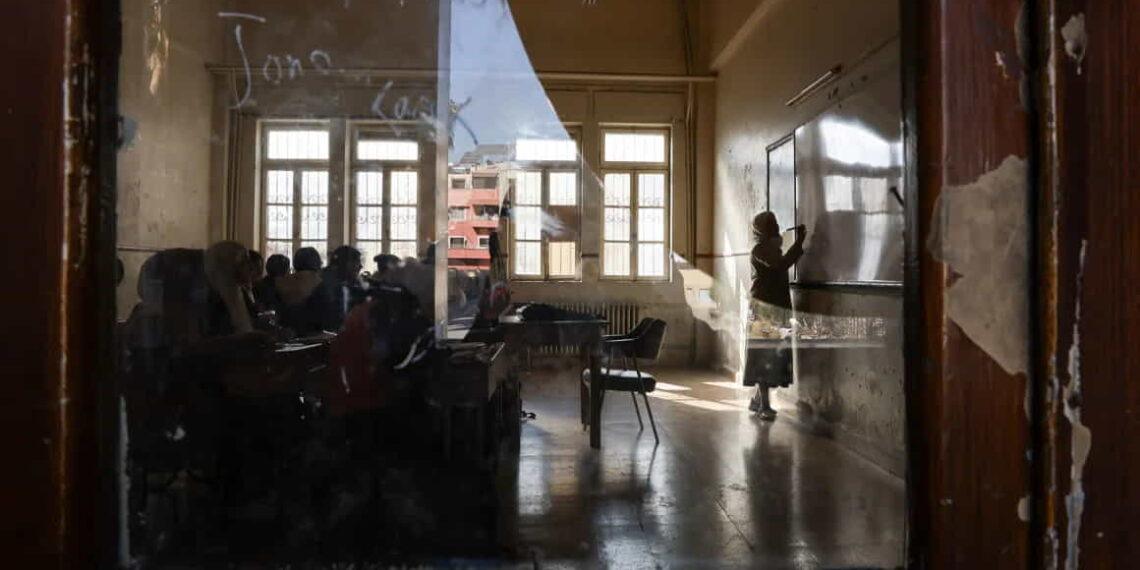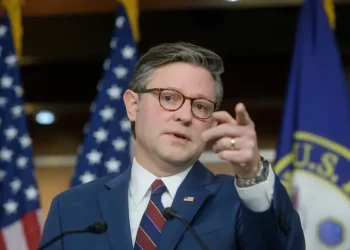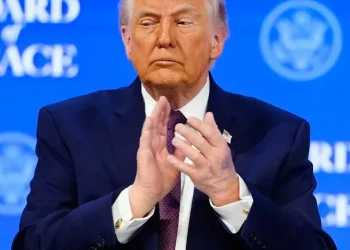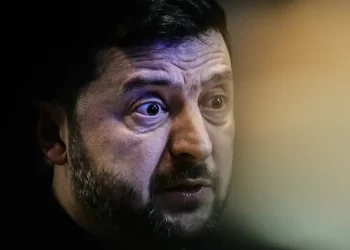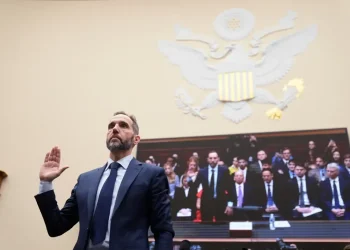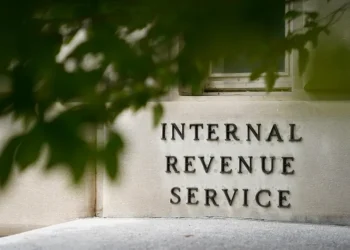Syria’s New School Curriculum Changes Spark Outrage
Syria’s new government is facing significant backlash after announcing changes to the national school curriculum. Critics are raising concerns over what they see as an Islamist influence being introduced into education, including alterations to religious and historical content.
Key Changes in the Curriculum
The changes, which were shared on the Ministry of Education’s official Facebook page, include several controversial amendments:
- Religious Language Modifications:
- The phrase “path of goodness” has been replaced with “Islamic path.”
- The statement “those who have are damned and have gone astray” has been altered to “Jews and Christians”, referencing an ultra-conservative interpretation of a Quranic verse.
- Definition of “Martyr”:
- The term “martyr” is now defined as someone who sacrificed themselves “for the sake of God,” as opposed to the previous definition of someone dying “for the homeland.”
- Content Removal:
- Entire chapters have been removed, including one on “the origins and evolution of life.”
These changes would impact students aged 6 to 18, but it is unclear whether they have already been implemented across schools.
Public Outrage and Online Backlash
The announcement of these changes sparked widespread outrage on social media. While some welcomed the removal of content associated with the regime of former President Bashar al-Assad, many criticized the religious modifications and what they saw as an Islamist slant in the new curriculum.
One social media user questioned the legitimacy of the interim government making these changes, commenting:
“The current government is a caretaker government that does not have the right to make these amendments to the curricula. The curricula must be amended in accordance with the new constitution.”
Others criticized the perceived erasure of history, particularly the modification of the curriculum to reflect a new religious direction.
The Role of the New Government
The newly appointed ministry assumed control last month after the ousting of President Bashar al-Assad. Assad’s regime, led by the secular Baath Party, was overthrown by rebels, including the Hayat Tahrir Al-Sham (HTS) group, which has historical ties to al-Qaeda. Under the leadership of Ahmed al-Sharaa, HTS is now attempting to project an image of tolerance and inclusivity.
The new government, which is acting as an interim administration, is tasked with overseeing the country until elections are held, a process that may take up to four years according to al-Sharaa.
Despite the government’s claims of tolerance, the changes to the curriculum have raised questions about the direction in which the country is heading.
Ministry’s Response to Criticism
In response to the growing backlash, the Ministry of Education issued a statement aimed at calming public concerns. The ministry explained that:
- Curricula remain unchanged until specialized committees are formed to review and audit them.
- The changes announced were focused on removing content that glorified the deposed Assad regime, including the replacement of regime flags with those of the Syrian revolution.
- The ministry described the changes as corrections to “inaccuracies” in the Islamic education curriculum, particularly the misinterpretation of Quranic verses.
The education minister, Nazir Mohammad al-Qadri, also emphasized that Syria’s school curricula would not undergo drastic changes, aside from removing references to the Baath Party. In an interview with Reuters, al-Qadri stated that both Islamic and Christian education would continue in schools, with primary schools remaining mixed-gender and secondary schools continuing gender segregation as they did under Assad.
Future of Education and Government
The HTS-led government, which currently serves as a caretaker administration, plans to stay in power until March 2025, after which elections may take place. It remains unclear how the transitional government will hand over power once elections are held.
As the interim government continues to implement changes, the future of Syria’s education system—and the country’s broader political landscape—remains uncertain.
This article was rewritten by JournosNews.com based on verified reporting from trusted sources. The content has been independently reviewed, fact-checked, and edited for accuracy, neutrality, tone, and global readability in accordance with Google News and AdSense standards.
All opinions, quotes, or statements from contributors, experts, or sourced organizations do not necessarily reflect the views of JournosNews.com. JournosNews.com maintains full editorial independence from any external funders, sponsors, or organizations.
Stay informed with JournosNews.com — your trusted source for verified global reporting and in-depth analysis. Follow us on Google News, BlueSky, and X for real-time updates.
